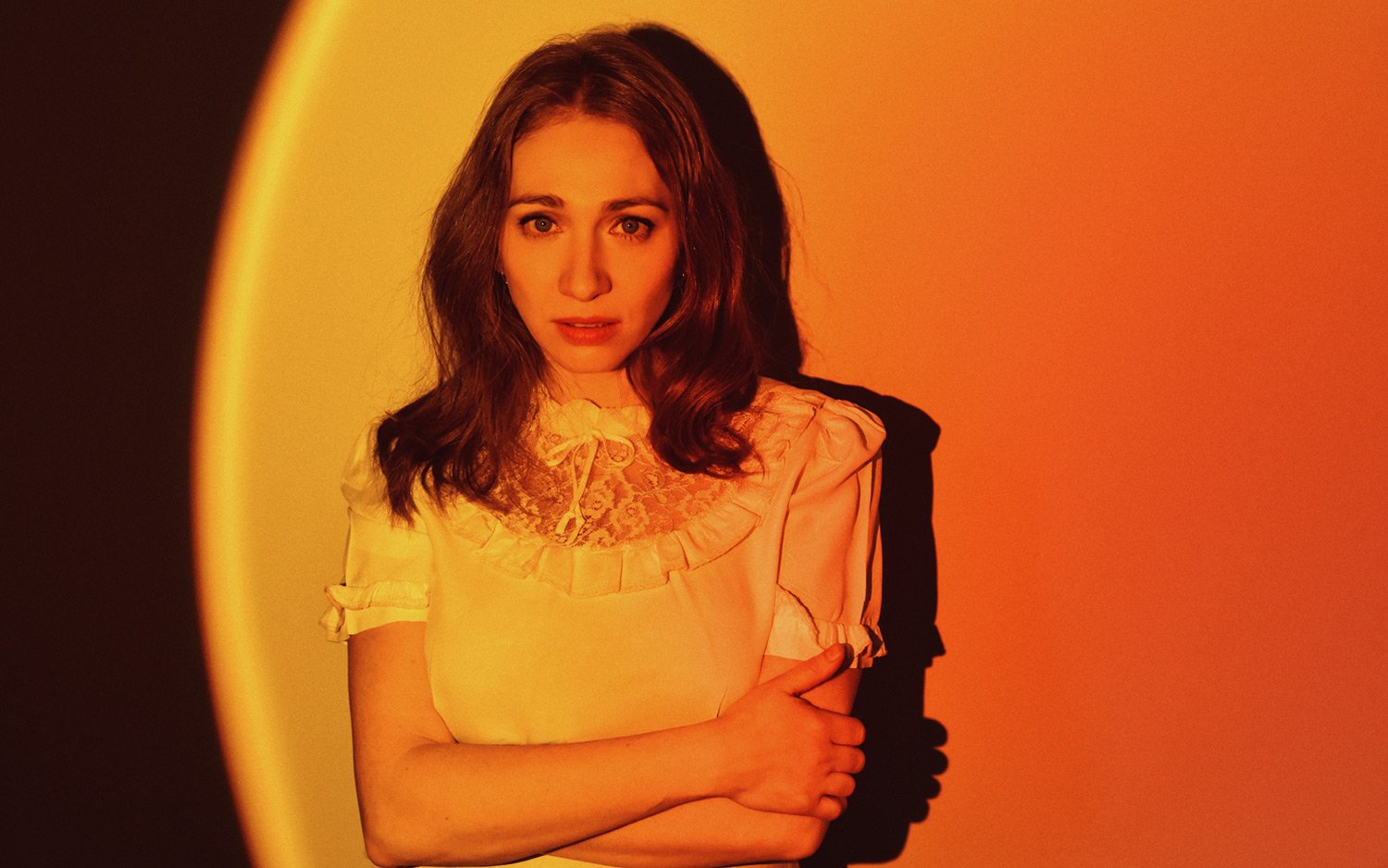REGINA SPEKTOR
Regina Spektor calls them sandcastles. There’s a million of them, songs that rise up and multiply in her brain — the fruits of months, sometimes years, of channeling and crafting. But what happens to them when it’s time to make new music?
“They all have to be slowly washed away. Some of them are really well built, and they’re really high up on the beach,” she says. “It all has to be gone, and then I can start to hear new songs and make a new record.”
Starting with a clean slate, with six momentous years between albums, Spektor returns this year with Home, before and after. Set for release on June 24 through Warner, her eagerly awaited eighth studio album is the follow-up to 2016’s Remember Us to Life. It pairs Spektor with John Congleton (St. Vincent, Sharon Van Etten, Angel Olsen), who produced the album from afar in Los Angeles with Spektor co-producing in upstate New York.
The years between her albums weren’t exactly fallow. In 2016, at her friend Lin-Manuel Miranda’s invitation, she contributed a song (“Dear Theodosia,” featuring Ben Folds) to The Hamilton Mixtape. Former New York City Mayor Bill de Blasio declared Regina Spektor Day in her hometown in June 2019, she got a street sign with her name at the Bronx Walk of Fame, and that same month staged a sold out residency on Broadway at the legendary Lunt-Fontanne Theatre.
Her work for television and film continued. “You’ve Got Time,” from Netflix’s Orange Is the New Black, entered the pantheon of classic TV theme songs, so much so that Spektor released an orchestral version of the award-winning tune for the final episode. She wrote “One Little Soldier” for the closing credits of the film Bombshell and multiple songs for the animated series Central Park.
Time has been kind to Spektor’s work. Twenty years have passed since she self-released her 2001 debut, 11:11, which will get a remastered reissue, as well as a limited-edition box set, on Aug. 26. In the decades since, Spektor, who was born in Moscow, Russia and raised in the Bronx, New York, has defied classification. With a sophisticated marriage of classical training and a gift for sharp pop hooks and nuanced lyrics, she has created her own genre. She makes Regina Spektor music.
Ahead of a Carnegie Hall show in July that sold out almost instantly, Spektor’s latest album cements her reputation as a singular, once-in-a-generation artist.
Q: Welcome back. It’s hard to believe we last heard an album from you six years ago, but people seem to be excited about this new one and the first single, “Becoming All Alone.”
A: I feel very, very loved right now. It’s a nice feeling. Sometimes you’re just in your own bubble while you’re working, but you know if you love it or like it. I can question things and wonder if I got it right, but as soon as I put new songs out into the world, I suddenly get so protective of them. I’m like, “Oh, I hope you’re understood. I hope you’re loved. I hope you’re accepted and invited into everybody’s homes,” You just don’t want one song sitting alone being like, “Nobody invited me to their birthday.” But you know every musician’s favorite song is their least heard one. That’s a law of some kind.
Q: This is the longest you’ve gone between albums, and sometimes there’s a misconception that artists aren’t creating when we don’t hear from them in a while.
A: I don’t know how time slips away, but it has definitely gotten longer and longer between records. In my imagination, I was going to be like the Beatles and put out a record every six months. I guess I didn’t realize how much I was going to love touring. When I started touring in the beginning, the tours would just go on and the world was so big. There are musicians who can be on tour and also working on their record, writing songs on the bus, making tracks in a hotel room. I’m not like that at all. When my mind is filled with the songs that I’m playing nightly, it’s completely filled with that. Usually it has to all get quiet before I can make new music.
I’ve written so many songs over the years that for every record I have to let a few old ones come and join the new ones I wrote. I have so many of them waiting their turn to get on a record. They’re on the island of forgotten old songs that have never gotten to be on a proper produced record. A lot of the time, the reason why I revisit them is because people will be asking for them over and over again. Then I get to playing them again, and figure out some new way back into them.
Q: That happened with a few songs on this new album, including “Loveology” and “Raindrops.”
A: Yes, exactly. With “Loveology,” I wrote it and then played it once or twice live. For whatever reason, it just left my mind. Sometimes I’ll have a song that I’m really glad exists, but I can’t record it because every time I try, it just doesn’t feel right coming out of my mouth. But for whatever reason both “Loveology” and “Raindrops” felt so right this time. They snuck back in during my solo tours and just stayed close.
Q: This album is full of surprises, even for listeners who have been with you since the beginning. What did these songs reveal about you that we maybe hadn’t heard before?
A: When I’m working on something new, I can’t really see the big picture. Maybe you’re not supposed to, cause then you’ll just end up following a map rather than creating one. So I just follow my instincts, like a little animal sniffing around, emerging out of hibernation with no idea what’s out there. What I appreciate so much is having an audience who actually want to go exploring with me, even when I don’t know exactly where I’m going. The only thing I can promise them is that I keep trusting myself, going further and further within myself and my known universe. Somehow they trust me too, which creates a feedback loop of encouragement, I think. I love being blown off course to new places I’ve never been before. And once I share the new music, I’m never alone in those places, because we all end up exploring together.
Q: You co-produced Home, before and after alongside John Congleton. How did the pandemic make that a unique experience for you?
A: Usually when I co-produce, everything is happening at the same time and in the same space as I am. I actually didn’t know this other way of working was possible, because I was so used to the connection and intimate work of endless hours spent together in the studio. But with this record we were on different coasts during a global pandemic, so we just talked a lot. We connected on video calls and real time audio sessions, working remotely on tedious funny stuff, big and small. But also there was a lot of understanding that we cultivated. I could speak freely about the sound I was looking for and he would magically come up with things that were either so in tune with that, or so out there but interesting, that I could reimagine the whole production in a new way. And with Jherek [Bischoff], too, on the arrangements. We would talk so much and he would just adjust and shift the arrangements into the places I could describe to him. It was just me painting verbal pictures, or humming an idea, or taking his idea and saying “that moment is cool but can we do it like this?” I guess many people have worked like that before, but for me it was a new and inspiring way of doing things.
Q: How did you come to work with John on this album?
A: We went to L.A. for a few months when I was making Remember Us to Life. My husband Jack and I kept taking turns working on things that were based out there, and those three months turned into about three years. Somewhere in there, John reached out and we got together for lunch. Then we started hanging out here and there, talking about trying something because I really loved his sounds and his explorations. When Jay Roach asked me to write a song for the film Bombshell, I thought John would be the perfect person to record it. We did it so fast and it was just fun and felt like the beginning of something. So we decided to do more. We had no idea that we were timing a record for the start of COVID. We were scheduled to start recording on April 1, 2020. I think the fact that this record somehow exists is a little miracle in my life.
Q: How was the process of working on this record different from your other ones?
A: Right before the pandemic hit, I found out I was pregnant. So we ran away to the woods to try and stay healthy during the pregnancy. I had never recorded pregnant before. I had no idea there would be this beautiful studio, Dreamland, where I could record safely and alone. My friends at Steinway sent this beautiful piano, and I was in this old church-turned-studio, recording all the takes by myself with Ariel, the engineer. He wore latex gloves if he had to come in and adjust a wire. I would leave for a few hours if I felt morning sickness. I’d just curl up on a bed in the separate little house they had on the property and lay there with the AC blowing on me thinking “This is crazy. How can this possibly work?” Then I would wobble back up the little hill and catch my breath and try again to record takes. I’d start recording and the baby would just be kicking, and I’d hear the birds and the crickets singing, or a little squirrel run across the roof of the church. Everything was so alive and real and precious. I felt so lucky. I never thought I’d get to make this record once the pandemic began, but here it is.
Q: When did you decide to call the album Home, before and after, and why did that expression resonate with you?
A: I usually tend to have the title kicking around my mind long before I have the record, and I never say it to anybody, ever. It feels like a scary thing for some reason. And I wonder what songs will be on the record and if they will fit. I remember the Strokes’ new album came out during the pandemic and it was called The New Abnormal. And I know that they made it before COVID. Magic things like that happen sometimes. Something becomes even more itself with time. For me this title keeps getting more and more meaningful. But that happens with songs too. You write a song and then with time it opens up new layers to you and helps you grow into it, I think.
Q: Concerts are such an important part of how you connect with an audience. What has the absence from live performance been like for you?
A: I just miss it so much. It’s been too long, and I’m dreaming of these shows.






